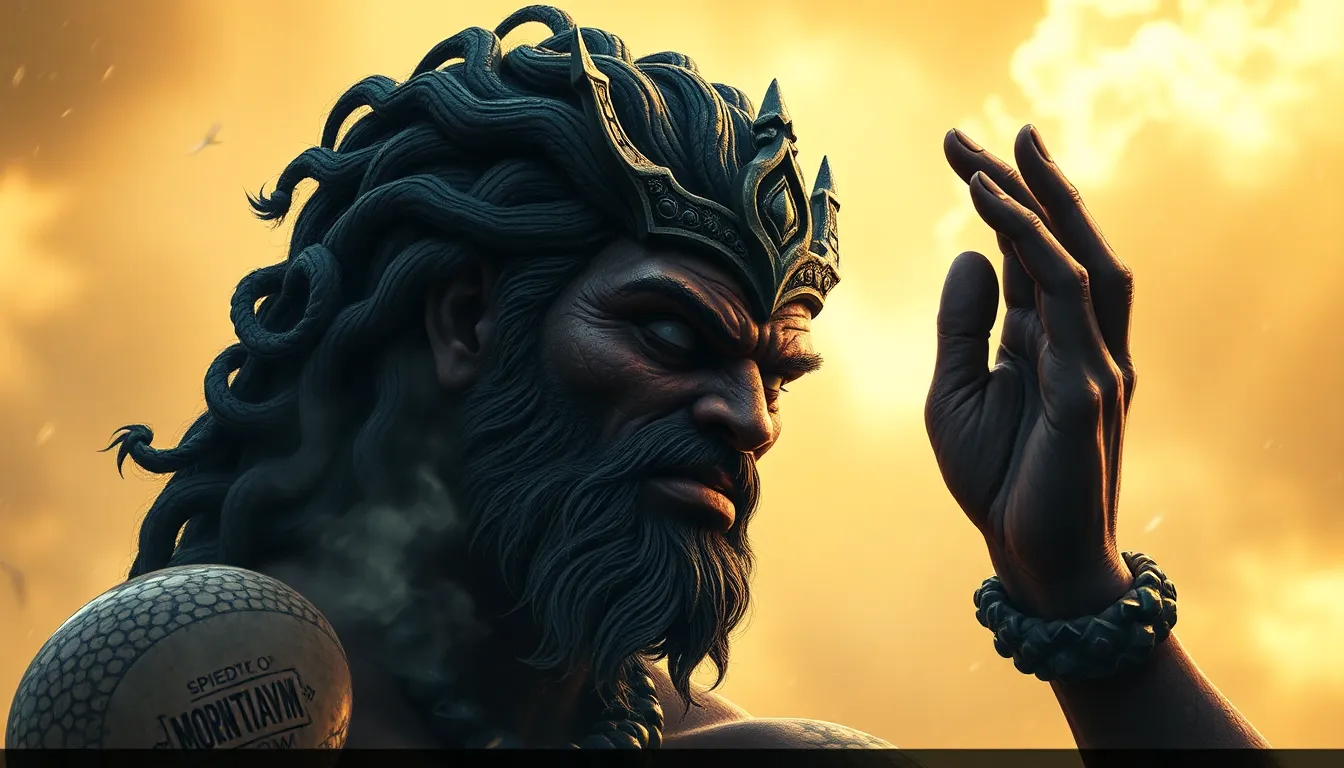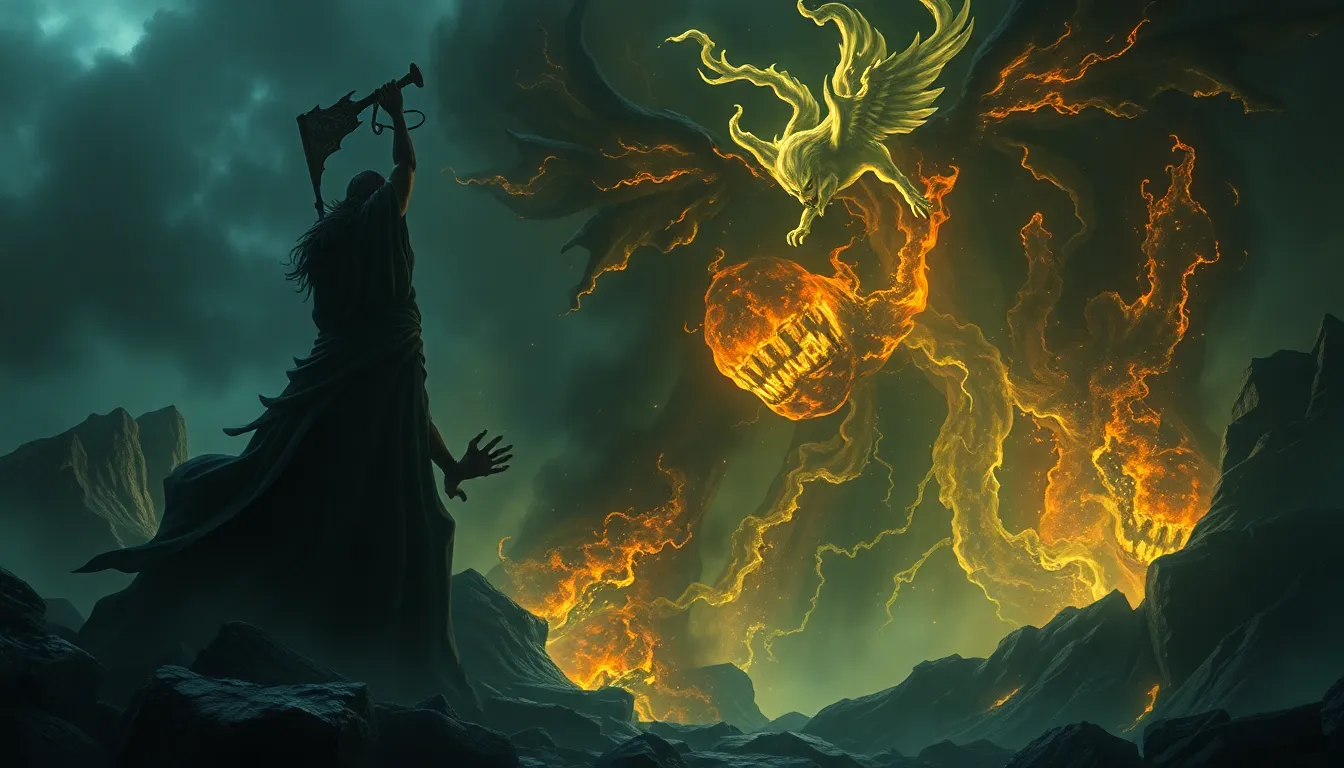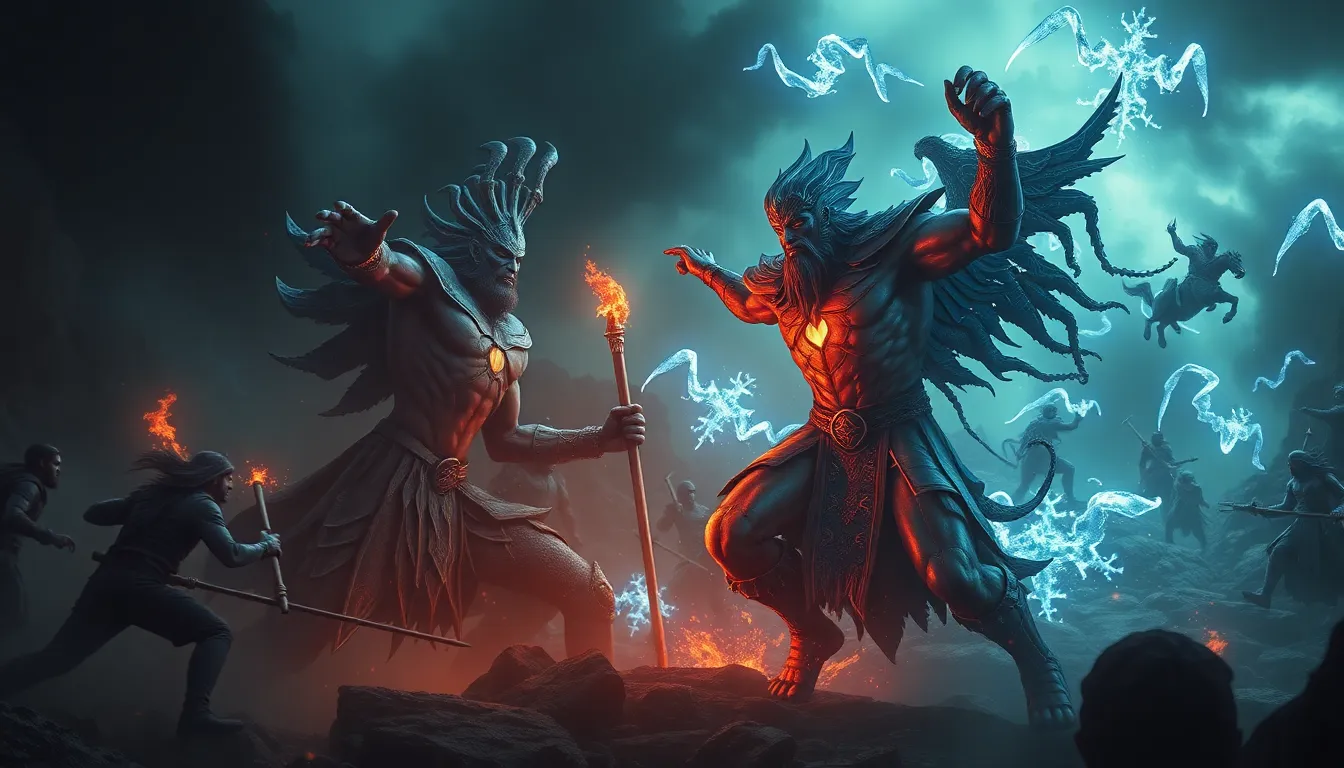When the Gods Frown: The Most Terrifying Divine Punishments
I. Introduction
Divine punishments in mythology serve as a powerful reminder of the consequences that can arise from human actions. These tales often convey moral lessons, illustrating the dangers of hubris, disobedience, and disrespect towards the divine. Across various cultures, the concept of divine retribution plays a significant role in shaping societal norms and values.
This article delves into some of the most terrifying examples of divine punishment found in ancient mythologies, highlighting the cultural significance of these stories and their lasting impact on civilization.
II. Ancient Mesopotamia: The Wrath of the Sumerian Gods
The Sumerians, one of the earliest known civilizations, possessed a rich tapestry of myths that depicted their gods as powerful and often vengeful beings. The Epic of Gilgamesh, one of the oldest literary works, provides insight into divine discontent and punishment.
A. The Epic of Gilgamesh and Divine Discontent
In this epic, the king Gilgamesh embodies both human strength and arrogance, prompting the gods to intervene. His journey reflects the tension between humanity and divinity, culminating in several divine punishments that serve to teach humility and respect.
B. Punishments for Human Hubris: The Flood and Its Consequences
The mythological flood narrative, similar to other cultural accounts, illustrates the gods’ discontent with humanity’s moral decay. The Sumerian gods decided to cleanse the world through a catastrophic flood, sparing only the pious.
C. Case Study: The Fate of Enkidu
Enkidu, created by the gods to humble Gilgamesh, meets a tragic end as a result of divine punishment for their arrogance. His death propels Gilgamesh into a quest for immortality, revealing the deep-seated fears surrounding mortality and divine wrath.
III. Greek Mythology: The Vengeful Olympians
Greek mythology is replete with tales of the Olympian gods exacting revenge on mortals who dared to challenge their authority or display hubris.
A. Overview of Greek Gods and Their Helplessness Against Hubris
The gods, while powerful, were not immune to the flaws of jealousy and anger. Hubris, the excessive pride that leads one to defy the gods, often invited dire consequences.
B. Prometheus: The Titan Who Defied Zeus
Prometheus, a Titan known for his intelligence, stole fire from the gods to give to humanity. As punishment, Zeus condemned him to eternal torment, having an eagle eat his liver daily, only for it to regenerate overnight. This myth serves as a cautionary tale about the limits of human ambition.
C. Niobe: The Tragic Fall of a Proud Mother
Niobe, proud of her offspring, dared to boast about her children’s superiority over the goddess Leto. In retaliation, Leto sent her children, Apollo and Artemis, to slay all of Niobe’s children, leading her to a life of despair. This illustrates the peril of vanity and the capricious nature of the gods.
IV. Norse Mythology: The Icy Grasp of Fate
Norse mythology presents a complex view of the divine, where gods like Odin, Thor, and Loki interact intricately with human fate.
A. The Role of Gods in Human Lives: Odin, Thor, and Loki
The Norse gods were deeply involved in the affairs of humans, often intervening directly in their lives. However, their interventions could just as easily lead to ruin.
B. Ragnarok: The Ultimate Divine Punishment
Ragnarok, the prophesied apocalypse, represents the culmination of divine punishment where gods, giants, and men face catastrophic battles, resulting in the death of many gods and the rebirth of the world. It serves as a powerful reminder of the cyclical nature of existence and the inevitable consequences of actions.
C. The Story of Loki and His Brutal Fate
Loki’s betrayal of the gods ultimately led to his gruesome punishment: he was bound with the entrails of his own son while a serpent dripped venom onto his face. Loki’s story underscores the consequences of deceit and rebellion against divine order.
V. Hindu Mythology: Karma and Divine Retribution
In Hindu mythology, the concept of karma is central to understanding divine punishment and justice.
A. The Concept of Dharma and Its Violations
Dharma, or righteous duty, is essential in Hindu thought. Violating dharma invites negative karma, leading to divine retribution over lifetimes.
B. The Punishment of King Harishchandra
King Harishchandra, known for his unwavering commitment to truth, faced extreme trials imposed by the sage Vishwamitra. His suffering exemplifies the testing of dharma and the consequences of upholding truth against divine challenges.
C. The Cycle of Rebirth: Consequences of Divine Wrath
The cycle of rebirth (samsara) ensures that individuals face the consequences of their actions in future lives, embodying the relentless nature of divine justice.
VI. Ancient Egyptian Beliefs: The Weighing of the Heart
In ancient Egypt, the concept of divine judgment was intricately linked to the afterlife, where the heart of the deceased was weighed against the feather of Ma’at, the goddess of truth and order.
A. The Role of Ma’at in Maintaining Cosmic Order
Ma’at represented truth, balance, and cosmic order. Her principles guided human behavior, ensuring that order prevailed over chaos.
B. The Final Judgment and Punishments in Duat
During the judgment in Duat, if a soul was found to be unworthy, it faced annihilation by the monster Ammit. This ultimate punishment highlighted the importance of living a just and virtuous life.
C. Examples of Divine Retribution in Egyptian Myth
Stories of divine retribution are prevalent in Egyptian mythology, such as the punishment of Set for his crimes against Osiris, underscoring the consequences of chaos and wrongdoing.
VII. Indigenous Mythologies: Nature and the Wrath of Spirits
Indigenous mythologies often depict a profound connection between humanity and nature, where disrespecting the spirits of nature can lead to dire consequences.
A. The Interconnection of Nature and Divine Punishment
Many indigenous cultures believe that nature is imbued with spiritual significance, and violating this relationship invites punishment from the spirits.
B. Case Study: The Great Flood in Native American Lore
Various Native American tribes tell stories of a great flood sent by the Creator as punishment for humanity’s transgressions, echoing themes of divine retribution found in other cultures.
C. The Consequences of Disrespecting Nature Spirits
Many tales illustrate the dire consequences of failing to honor nature spirits, emphasizing the need for respect and harmony with the natural world.
VIII. The Abrahamic Traditions: Divine Justice and Punishment
In the Abrahamic traditions, divine justice is a central theme, often illustrated through stories of punishment for sin and disobedience.
A. The Old Testament: Sodom and Gomorrah
The destruction of Sodom and Gomorrah serves as a stark warning against immorality and the consequences of collective wrongdoing. The cities were razed to the ground by divine fire, illustrating the severity of divine judgment.
B. The New Testament: Ananias and Sapphira
In the New Testament, Ananias and Sapphira faced immediate death for lying to the Holy Spirit about their donations. This story exemplifies the seriousness of integrity and truth in the eyes of the divine.
C. The Concept of Hell as a Divine Punishment
The concept of hell in Abrahamic religions represents the ultimate punishment for those who reject divine authority and live in sin, serving as a deterrent against moral failings.
IX. Modern Interpretations: The Legacy of Divine Punishment
The idea of divine punishment has evolved over time, influencing contemporary culture, literature, and ethics.
A. The Evolution of Divine Retribution in Contemporary Culture
Modern interpretations of divine punishment often reflect societal values and ethical dilemmas, showcasing how ancient myths continue to resonate today.
B. Influence of Ancient Myths on Modern Thought
Ancient myths serve as a foundation for understanding morality, justice, and the human condition in modern narratives, emphasizing the timeless nature of these themes.
In conclusion, the terrifying examples of divine



